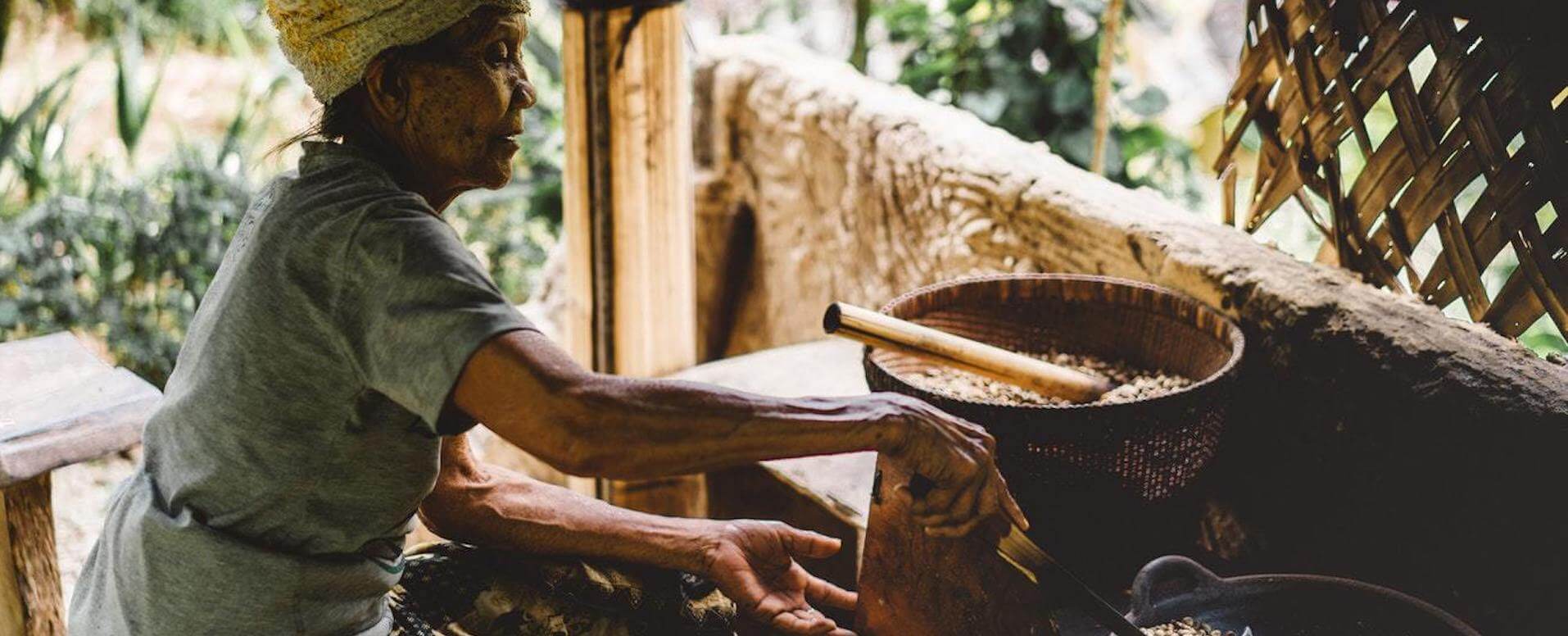Over the years, Indonesia has grown to become an attractive destination today. We tell you all the history of this archipelago. From the first civilisations, to the independence and the Islamisation of the population, the Route des Epices and its history will amaze you!
The Indonesian archipelago has been gradually growing over the years. The first people to invest in the place were sailors and rice farmers, at the origin of the implementation of techniques of fishing and rice cultivation, which are the foundation of the Indonesian civilisation. From the fifth century, two political entities emerged. On the one hand, maritime states on the coast of Northern Java and on the other hand, the kingdoms of the interior with the exploitation of land in the East and central Java.
In contact with the Indian people, the kingdom of Srivijaya, Southeast of Sumatra, was the first state influenced by the Indian culture and adopted the language, Sanskrit, as well as the Buddhist and Hindu religions. This cultural strength has allowed this region to control trade (and especially the spice trade) between China, India and the archipelago for years.
From the end of the 13th century, Islam entered Indonesia, although its presence was already palpable for several years in some regions. This religion spread intensely and caused the rural exodus of many religious intellectuals and nobles of Java, pushed to take refuge in Bali, remained Hindu and resistant to the Islamisation of the rest of the archipelago. The Arabic alphabet replaced that of Malay, and its influence extended to literature, religion, law and other areas.
The spice trade between Europe and Indonesia has its origin with the arrival of Portuguese merchants. Especially in the Moluccas, the spice islands, was the first Portuguese colonial counter. But in 1602, Holland exerted control over trade with the installation of the Dutch East India Company (VOC), introducing a period of slavery and terror for the local population. The company then created Batavia, formerly Jayakarta (present-day Jakarta) and finally went bankrupt in 1800. The Dutch were present on the territory until the middle of the 20th century under the name of the Dutch Indies, developing the cultures of spices, seeds, tea or coffee, from which they made profit.
In 1949, Indonesia declared independence with the exodus of Dutch colonial leaders. Indeed, thanks to the rebellion of intellectuals, the Dutch agreed to give their freedom to Indonesians. But, this new climate pushed the country into chaos. It was during the Second World War that the Japanese invaded Indonesia. Then, in 1955, the first elections in Indonesia took place with the election of Ahmed Sukarno, Marxist and anti-imperialist. The latter ruled the country until 1967, when General Suharto took power and became President in 1968. He then established an authoritarian capitalism, opening the country to the outside. This also led to an economic and social crisis because of incommensurable expenses, a weak economy and a rebellion of the population. In 1998, Suharto resigned from his post.
Since 1955, the first democratic elections were held in 1999. However, it is only in 2004 that the first presidential elections were held by direct suffrage in two rounds, with the election of Susilo Bambang Yudhoyono. Indonesia then returned to a stable economic situation and developed.
